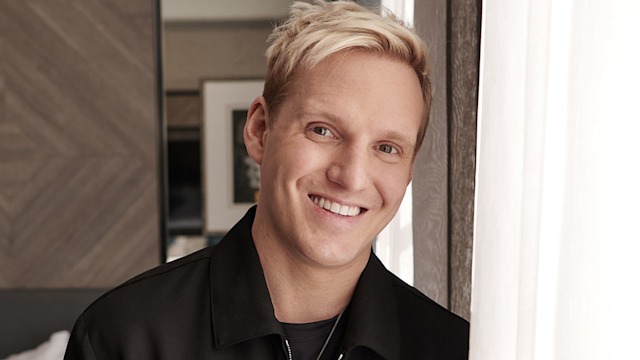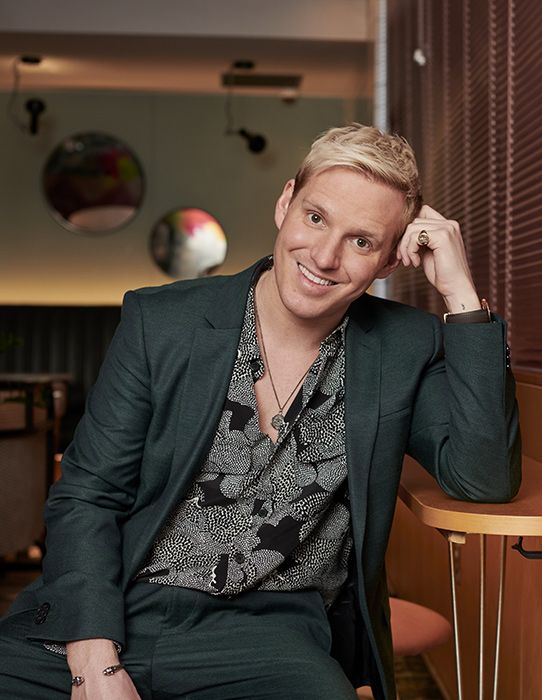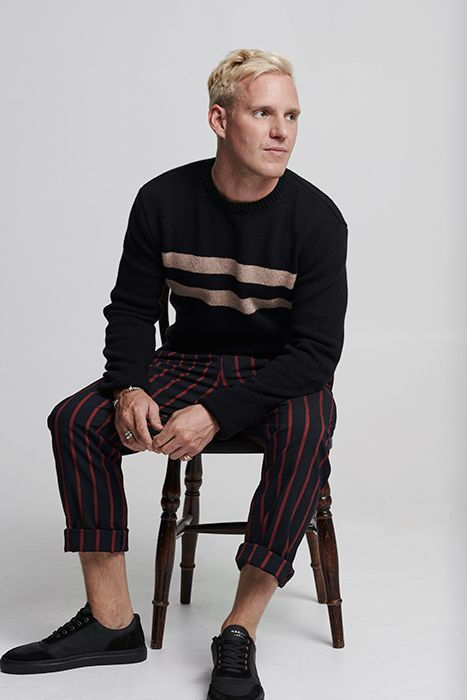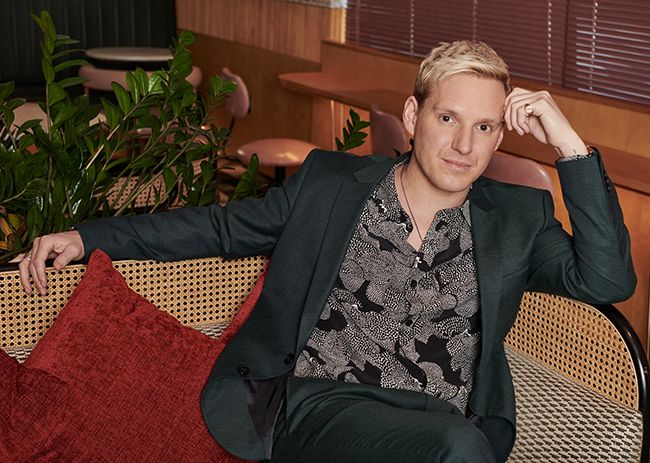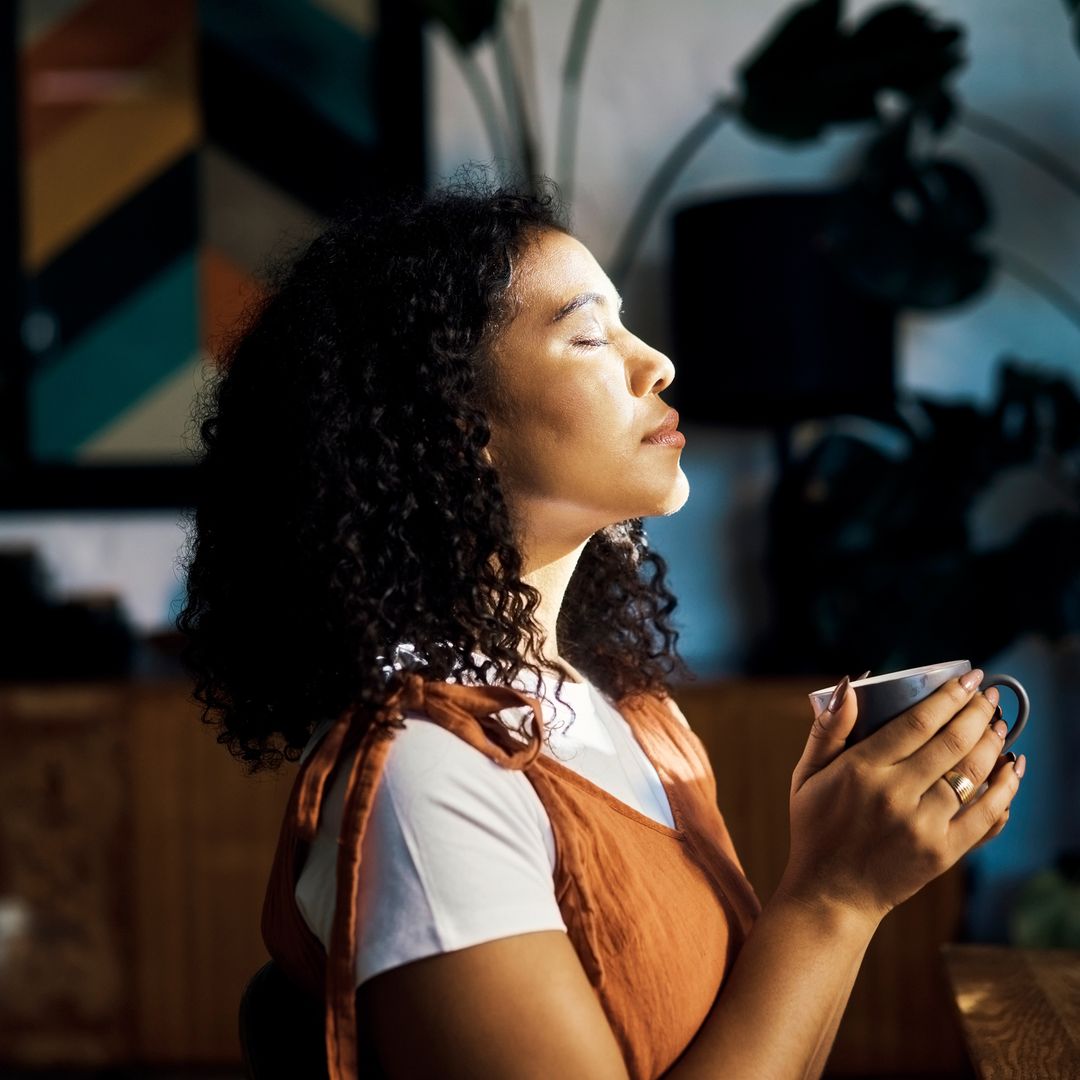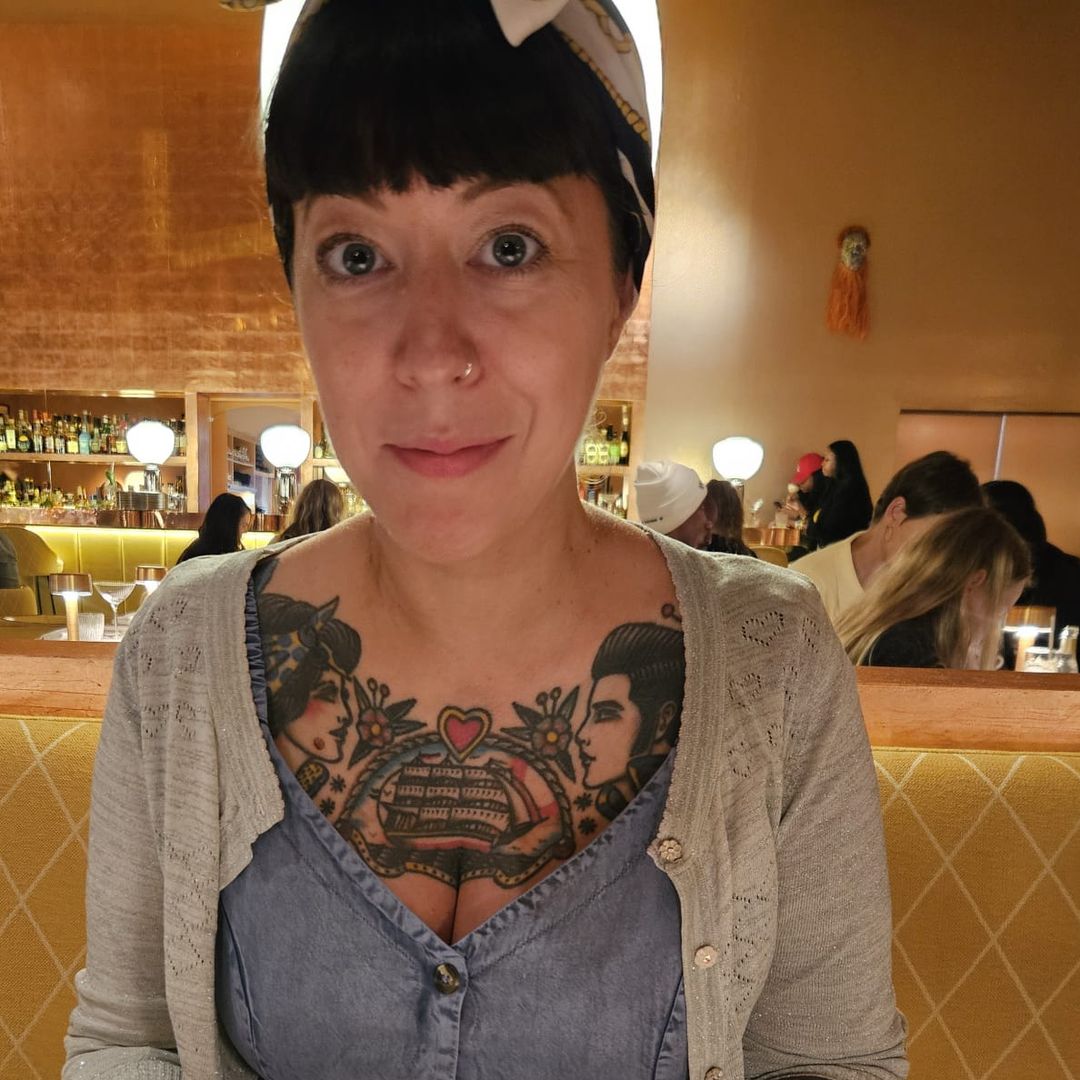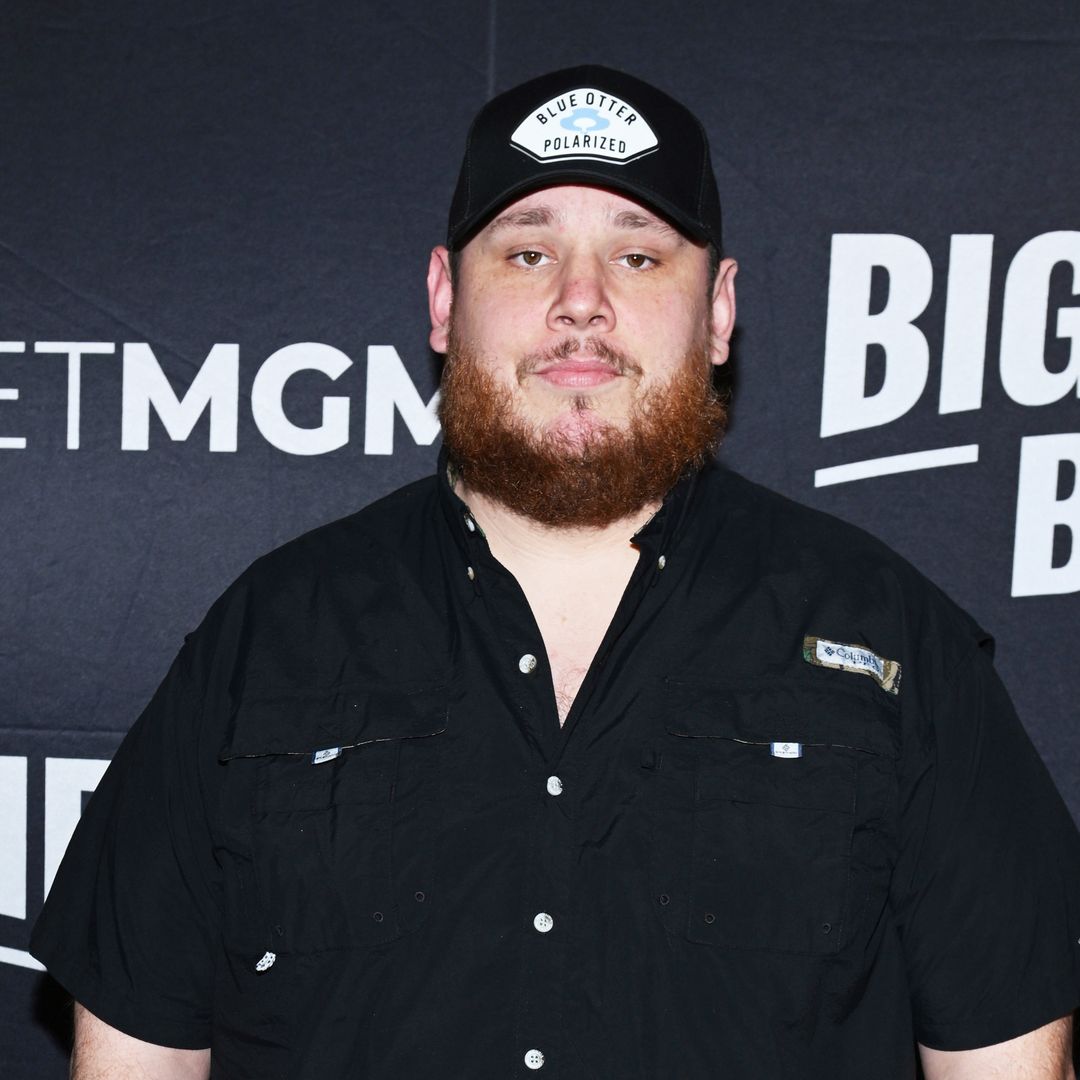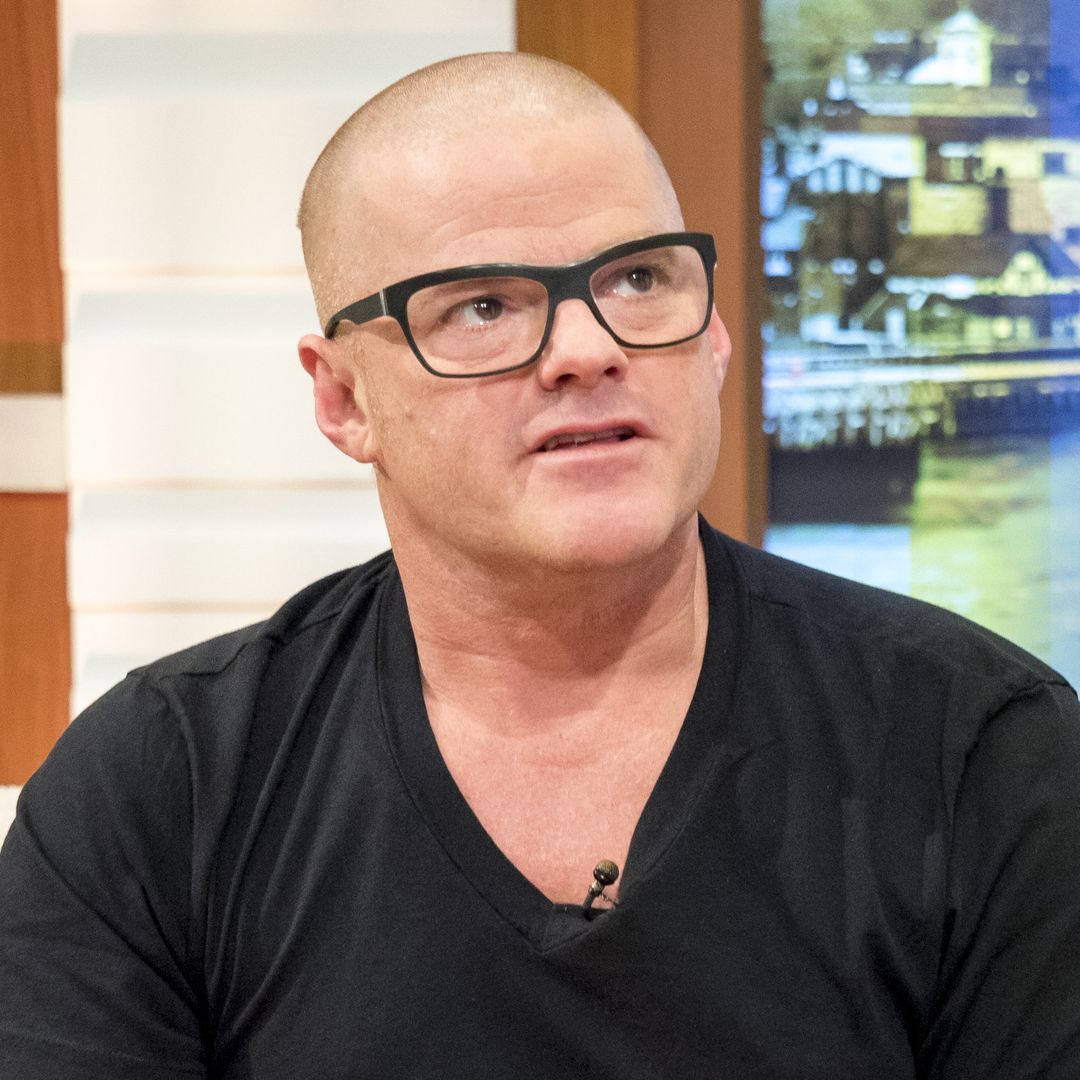We all know Jamie Laing as the cheeky, cheerful TV personality who stars in Made in Chelsea, owns vegan sweet company Candy Kittens and appeared in Strictly's 2020 final with dancer Karen Hauer.
However, behind the scenes, Jamie, 33, has fought his own private battles, having suffered from anxiety and panic attacks since he was 21, and at age 27, experienced a frightening episode of depersonalisation.
WATCH: Jamie Laing reveals his engagement to Sophie Habboo
Jamie told us: "Typically with depersonalisation, it's off and on, but mine was full time, every single day for six months. I didn't want to open my eyes in the morning because I'd see this fog. I thought I was going mad."
As part of our Mental Health Digital Issue guest-edited by Scarlett Moffatt, Jamie opened up to HELLO! about his mental health journey. He talks honestly about developing anxiety, how he suffered in silence pre-diagnosis and the coping strategies he now uses.
You've spoken about suffering from depersonalisation and anxiety before, when did that start for you?
I was always been an anxious kid without realising and I had bad OCD. Every single night when I was six years old at school, my teacher would ask us to say a prayer before we were sent home to our parents.
My parents got divorced when I was eight years old and I was sent to boarding school. I would have to say that prayer every single night without messing it up in my head before I went to sleep, and at the end of the prayer I'd have to go, 'And that goes for mummy, daddy…'
I didn't tell anyone about it because I thought it was a bit weird that I was doing it. That was probably a little bit of a sign that I had some sort of anxiety.
Flash forward to when I was 21 years old and I had just started doing MIC.
I had a panic attack. It was a typical panic attack: I thought I was dying, thought it was a heart attack and took myself to hospital. They said: 'Look, you're having a panic attack, go home, you'll be fine.'
MORE: How to deal with loneliness - causes, cures and how to help someone experiencing it
Made in Chelsea star Jamie Laing Photo credit: Joseph Sinclair
How did you feel when you had your first panic attack?
It was the worst feeling I've ever had. I felt like the world was closing in. I honestly felt like I was dying.
The problem was, that I run at such a high frequency that when the panic attack started to calm down, all my adrenaline dropped. I suddenly felt this sense of doom and lowness that I've never felt ever. I went to bed that night, trying to sleep and praying it would go away.
I woke up the next morning and I was like a changed person.
I was nervous and constantly freaking out I was going to have another one of these panic attacks. I didn't tell anyone about it and I had to still pretend that I was OK.
I always say that I'm not the smartest person but I'm good at understanding people and making people feel comfortable and having conversations – my mind is always pretty good, but it blocked my mind. It stopped my mind from working and that was the biggest, horrible thing. I wasn't me. I wasn't who I thought who I was.
It was the beginning of General Anxiety Disorder – and I didn't tell anyone, ever. I kept it completely quiet until about six months in. I used to say to my friends: 'Do you ever feel nervous?' They would go, 'No, I don't know what you're talking about'.
Six months in, I was in the shower and so utterly anxious all the time that I finally said out loud: 'What is wrong with you Jamie?' It made me very upset so I phoned my mum and told her. I went to a therapy session and they said: 'You've got anxiety'. They wanted to put me on medication but I didn't want to.
MORE: One Samaritans volunteer reveals how breakdown of her marriage led her to call the charity
Then I used to drink too much to calm it down. That led me up until I was about 27 years old. Then because of the anxiety I'd been feeling for so long, I was sitting in a restaurant and I was having an argument with my then-girlfriend and this filter came across my eyes.
Some people call it derealisation or disassociation; I call it depersonalisation. It's basically like your body goes into protective mode. You typically get it from PTSD, depression or anxiety, severe stuff, and your body says, 'Right, I need to protect you from this because you've gone through too much in your mind so we're putting you on autopilot'.
It felt like I was floating above myself. Typically with depersonalisation, it's off and on, but mine was full time, every single day for six months. I didn't want to open my eyes in the morning because I'd see this fog. I thought I was going mad.
So then I started taking therapy seriously. I started going once a week. They explained what I was going through. I said: 'What can I take to make it better?' They said: 'You can't take anything'.
I went on holiday and I rested for the first time for about 10 days, and it suddenly lifted. It was like someone had removed a filter on Instagram. That's the only way to describe it. I was suddenly like, 'Oh my god, I'm back to myself'.
From that day on, I've had therapy every single week and I have ways of dealing with it.
It was then a sense of having to accept that I was this anxious person and a person who dealt with these things, rather than trying to fight it. Since I've been able to accept that this is who I am, I can handle the situation much better.
Did you talk to your male friends about your anxiety?
No. I didn't say anything to anyone for ages and then I was having a really bad patch and I finally thought, god, I have to tell someone, so I phoned up my friend Toby and he said: 'Are you ok?'
I started crying and he asked, 'What's the matter?' I said, 'I just feel so sh** at the moment, I don't know what's the matter with me, I don't know what's wrong.'
He said: 'Don't worry, we'll go through this together.' It was one of these moments, that if you reach out to your friends, you always get an echo back, always. The thing is that we never reach out to people because we're too afraid of the reaction, but the reaction is always positive.
Jamie is open about his anxiety Photo credit: Joseph Sinclair
What would you say to someone going through the same thing now?
I would say that firstly, it's not a quick fix, but will get better. One hundred per cent, it always gets better. Even if you're in the thick of it, if you can't see the wood for the trees, it always gets better, and you have to learn to accept it.
It's like when you sleep in a room with air-con - if you think about it, you can hear it. Or you're on holiday and you can hear the crickets; once you accept that are there, once you accept that that's who you are, that's the path to freedom. But it's so hard to do that.
I also got told this saying: 'This too shall pass.' It doesn't matter if you're happy, sad, popular, or unpopular, everything always passes. Whatever situation you're in, it always changes. It may take a week, a year, two years, it will pass.
How are you now with your anxiety?
Someone once said to me: 'You'll learn to live with it.' I was like, 'I don't want to!'
Lucky but unlucky for me, I've got tinnitus, which is a constant ringing in my ears. That is incurable, but I learnt to deal with it. With tinnitus now, I don't really notice it. I can hear it all the time but it doesn't bother me.
It's the same with anxiety – it doesn't really go and it can flare up occasionally and be annoying sometimes but you learn to live with it.
I also treat it as an alarm now. If I do feel anxious, it must mean I'm tired, stressed or run down and I need to rest, and then I rest. Before, I never listened to my body; now I'm absolutely in sync with my body.
What self-help techniques do you do if you can feel anxiety coming on?
I meditate and I do cold therapy – three minutes in a shower every single morning. Do it for a month or two months, suck it up, and I promise you you'll see the difference, it's amazing.
I had Wim Hoff on my podcast and I started doing cold therapy. The first day it was terrible, the first week it was awful, the second week I was like 'this has ruined my morning', the third week ok… after about five weeks you sleep better, the anxiety and stress levels down, you're calmer.
Since doing cold therapy I now do something called a Cryochamber where I go in -145 degrees for three minutes. It's the best thing I've ever done, I think, in terms of helping myself. That's the more expensive way of doing it – cold showers are just as effective.
Jamie has spoken about his panic attacks Photo credit: Joseph Sinclair
With anxiety, do you know what your triggers are?
No, and sometimes it's really hard to control it. Sometimes it just flares up. The other day it flared up so bad that I thought [my fiancée] Sophie didn't love me anymore. It's crazy. The mind suddenly flips one day. I was like 'What the hell is going on?'
You then just have to try and rationalise in your head and go, 'I'm obviously not thinking clearly now and these are the reasons'. You take a step back.
Triggers? Alcohol probably, working too hard, late nights, arguments with friends and family members, all that stuff.
If you get a panic attack now, how do you deal with it?
I'm lucky enough to have taken control over that. I almost lean into it. If I'm starting to panic I think, 'Ok fine, come on, just relax'. I say there's nothing the matter here, everything's chilled, we're all completely relaxed – tell yourself that as it's happening.
And medication… people talk about the side effects of medication but the side effect of depression is suicide. So take the medication.
Do you talk to your fiancée Sophie about your anxiety?
I do, but also I think it's important to not use your partner as your therapist. It's so easy to do that. I'm lucky enough to go to a therapist every week. I think it's important to not lean so heavily on partners in that area. They can help and you can help them, but if you can, use the NHS or get a therapist.
It's important to seek help if you're struggling…
It's so important, it helps so much. Always talk about it. We know the scary statistics of suicide, especially suicide in men because men typically hide it all. There's nothing to be ashamed of or embarrassed about, just talk about it.
For mental health support contact Samaritans at samaritans.org
Jamie Laing and fiancée Sophie Habboo's have new podcast Nearlyweds about the highs and lows of getting married
